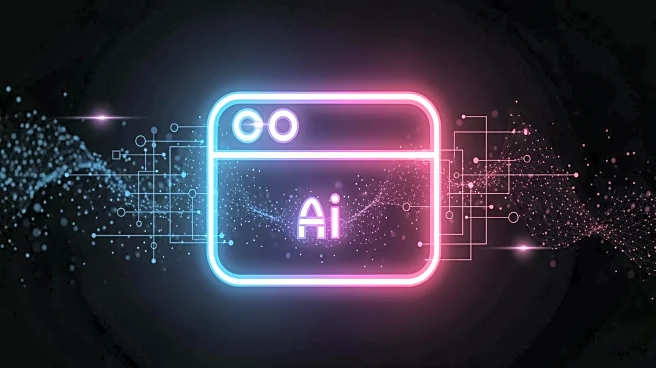What's Happening?
Opera has launched its AI-powered browser, Neon, which integrates three distinct AI agents: Chat, Do, and Make. These features are designed to enhance user experience by providing AI-driven assistance
for various tasks. However, users have reported confusion in navigating these features, as each agent serves different functions. Neon is entering a competitive market alongside other AI browsers like Google's Chrome and Perplexity's Comet. Unlike its competitors, Opera charges a monthly subscription fee of $19.90, setting high expectations for a product that is typically free. The browser includes standard features like ad blocking and VPN, with AI functionalities prominently displayed. Despite its innovative approach, users have encountered challenges with the AI agents, such as difficulty in switching between tasks and occasional inaccuracies in task execution.
Why It's Important?
The introduction of AI-powered browsers like Neon represents a significant advancement in web browsing technology, offering potential improvements in efficiency and user experience. However, the subscription model poses a challenge, as users may be reluctant to pay for features available for free elsewhere. The confusion experienced by users highlights the need for intuitive design and clear guidance in AI integration. As AI browsers become more prevalent, they could reshape how users interact with the internet, potentially influencing browsing habits and expectations. The success of Neon and similar products will depend on their ability to deliver seamless and reliable AI assistance, which could drive further innovation in the tech industry.
What's Next?
Opera may need to refine Neon's user interface and functionality to address user confusion and improve the overall experience. Enhancements in AI accuracy and task management could make the browser more appealing to users. The company might also consider adjusting its pricing strategy to better compete with free alternatives. As AI technology evolves, Opera and other browser developers will likely continue to explore new features and capabilities, potentially leading to more sophisticated and user-friendly AI browsers. The feedback from early adopters will be crucial in guiding future developments and ensuring the product meets user needs.
Beyond the Headlines
The ethical considerations of AI-driven browsers are significant, as they involve data privacy and user autonomy. Ensuring that AI systems respect user preferences and protect personal information will be essential to maintaining trust. Additionally, the cultural impact of AI integration in everyday technology could influence how users perceive their relationship with digital tools, potentially leading to shifts in digital literacy and technology adoption.











